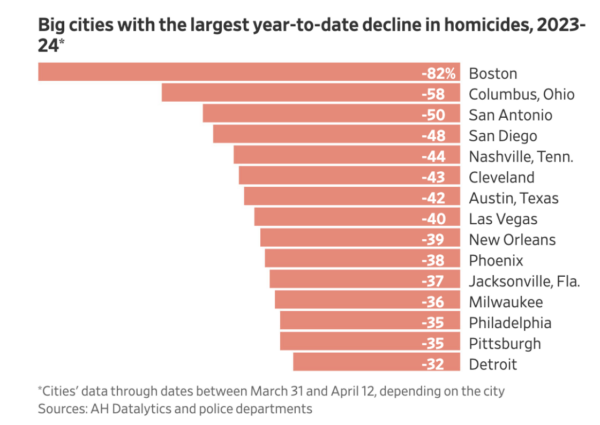The saga of how state-run radio (better known as NPR) continues to fester, despite the best attempts of NPR’s new apparatchick, Katherine Maher, to suggest her previous hostile comments about free speech, her “my trutherism,” and her Democratic partisanship are all “taken out of context.” (Understand that for the contemporary left, “context” is everything, so claiming something anyone says is “taken out of context” is not a denial that they meant what they said. You’re just not choosing the “right” context to understand it properly.)
Yesterday the New York Times reported on “Inside the Crisis at NPR,” and it could easily be a premier entry in our currently dormant “Civil War on the Left” series. Lots of fun bits:
NPR’s troubles extend far beyond concerns about its journalism. Internal documents reviewed by The New York Times and interviews with more than two dozen current and former public radio executives show how profoundly the nonprofit is struggling to succeed in the fast-changing media industry. It is grappling with a declining audience and falling revenue — and internal conflict about how to fix it. . .
A yearslong push to diversify NPR’s staff, in part to lure listeners beyond its aging and predominantly white audience, hasn’t generated the listenership boost some executives had hoped for. . .
The organization is now led by Katherine Maher, who started as NPR’s chief executive last month after leading the Wikimedia Foundation, which supports the online encyclopedia Wikipedia. Ms. Maher had no professional experience in the news industry.
Sounds like the perfect person for the job!
The best part of the story, though, is the angst over NPR failing the crucial identitarian diversity test. NPR’s listening audience is 75 percent white, and that won’t do. Having state-run Democratic Party media is useless unless it reinforces the previous voting habits of minorities, which are slipping away from Democrats right now.
One 2020 survey, from the Pew Research Center, found that of the people who named NPR as their main source for political and election news, 75 percent were white, more than any other outlet except Fox News. . .
OMG—The Times is comparing NPR to Fox News! That has to hurt. There is no lower blow imaginable.
NPR’s leaders redoubled their efforts to diversify their audience and work force and closely tracked metrics for each. They added podcasts aimed at people of color and younger listeners. They promoted people of color to high-profile reporting and hosting jobs. All of these moves were meant to ensure the nation’s public radio network would remain competitive as the country’s population continued to grow more diverse.
So it came as a disappointment to some people on NPR’s board last fall when they were presented new internal data showing their efforts hadn’t moved the needle much with Black and Hispanic podcast listeners. . .
NPR’s efforts to diversify itself and its audience didn’t always live up to the expectations of the people who worked there. During a round of layoffs last year, NPR cut “Louder Than a Riot,” a hip-hop podcast that examined Black and queer issues. After that decision, the show’s editor, Soraya Shockley, who had previously worked at The Times, grilled Mr. Lansing [NPR’s previous president] during an employee question-and-answer session about why the show had no dedicated budget, pointing out the lack of resources supporting content that furthered diversity, equity and inclusion, or D.E.I.
The angst over this turned into a Maoist struggle session:
Later on the call, after Mr. Lansing urged employees to be more mindful of “civility” in their questions, an NPR employee wrote in an instant-messaging chat accompanying the conversation that the word ‘civility’ is often used as a cudgel against people of color, calling the language choice “racist.”
After the meeting, Shockley filed a human resources complaint against Mr. Lansing, saying his remarks about civility amounted to “dog-whistle racism,” according to a person with knowledge of the exchange. The complaint against Mr. Lansing was referred to an outside law firm, which did not recommend any punitive action.
Yet another lesson in how every revolution sooner or later eats its own.
Chaser—forbid the thought that “diversity” might include diversity of ideological views:
Still, some critics of NPR believe NPR’s “North Star” strategy has failed for a completely different reason: It has not taken ideological diversity into account. Tim Eby, who was the general manager of St. Louis Public Radio until 2020, said in an interview that while it made sense for NPR to seek an audience that looked more like the country, he wasn’t sure its approach was the right one. And its story selection has on occasion left it open to criticism that its focus on race and identity has affected its news judgment. There have been stories, for instance, on how to “decolonize your bookshelf” and “thin privilege.”
You’ll never guess what happened next! Eby was dismissed (on charges that he created a hostile racist environment at the station), and is now suing St. Louis Public Radio for defamation.


